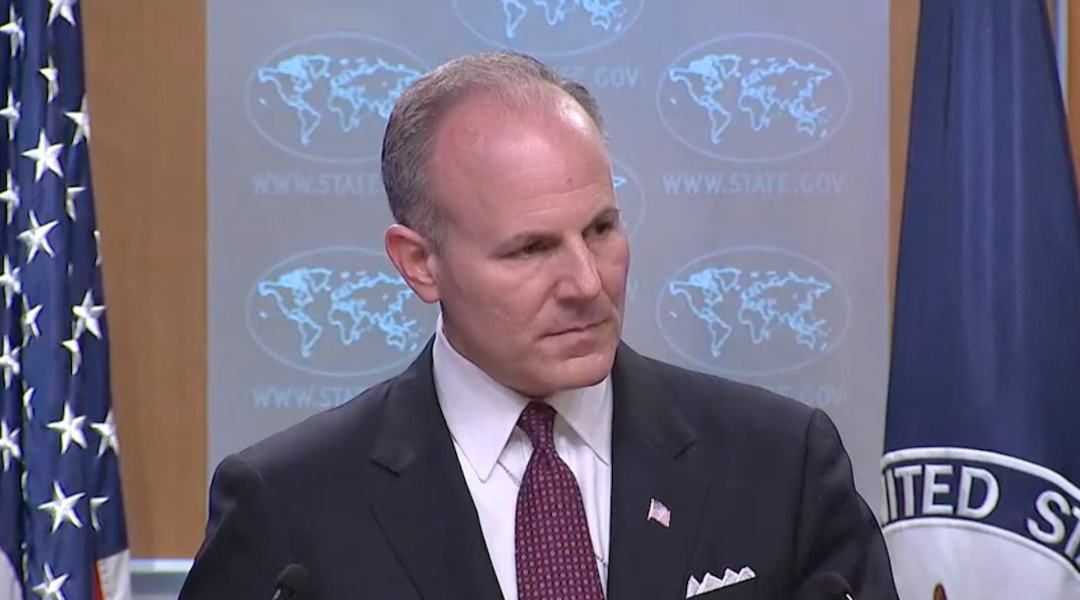(JTA) — Elan Carr, the U.S. envoy against anti-Semitism, called legislation in some European countries limiting the ritual slaughter of animals and circumcision of boys a “disgraceful forced expulsion” of Jews.
Carr made the statement Monday in Belgium during a speech he delivered in Antwerp at the General Convention of the Conference of European Rabbis. It was the largest-ever conference by that rabbinical Orthodox group.
Antwerp was selected as the venue to “give us an opportunity to let the government hear what we think about their banning of shechitah,” Conference of European Rabbis President Pinchas Goldschmidt told the Jewish Telegraphic Agency, referring to the kosher production of meat.
Shechitah was banned in effect in January in the Flemish Region, the Belgian state whose largest city is Antwerp. Belgium’s Walloon region is set to implement a similar ban this year.
For meat to be kosher, the animal from which it is produced must be killed when it is conscious. Muslim communities have similar requirements for making halal meat. Across Western Europe, animal welfare and anti-immigration activists have advanced initiatives to ban slaughter without stunning.
A similar effort is underway regarding the Jewish and Muslim customs involving nonmedical circumcision of boys, or milah in Hebrew, though no bans have been passed so far.
Amid rising anti-Semitism, Carr said, “we have disgraceful pieces of legislation that ban shechitah, that are now contemplating banning brit milah. Well let me tell you what it is. This is nothing but a forced expulsion of the Jewish community of the country that adopts such legislation. A forced expulsion. And it is intolerable.”
Carr’s predecessor, Ira Forman, used softer language on milah, warning that its ban “can shut down a community.” The United States has largely stayed out of the debate about shechitah.
JTA has documented Jewish history in real-time for over a century. Keep our journalism strong by joining us in supporting independent, award-winning reporting.






